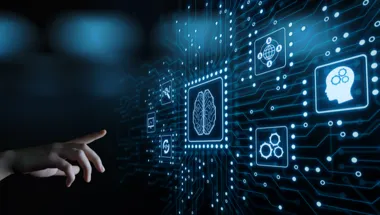
Dr Grace Jacobs
Postdoctoral Fellow
Biography
Grace Jacobs is a postdoctoral fellow in the Artificial Intelligence in Mental Health (AIM) Lab in the Department of Psychosis Studies at King’s College London. Her main focus is on trajectories of early psychotic symptoms and overlapping symptoms (e.g., affective, autistic traits) and how machine learning and neuroimaging data can be used to identify predictive biomarkers of illness and provide insight into underlying neurobiology and associated risk factors.
Grace completed her Ph.D. in the Institute of Medical Science at the University of Toronto under the supervision of Dr. Aristotle Voineskos and Dr. Stephanie Ameis. Her work used structural, diffusion, and resting-state fMRI, as well as multivariate, machine learning, and factor analytic approaches to investigate behavioural and neurobiological risk factors associated with psychosis spectrum symptoms and neurodevelopmental disorders in children and adolescents.
Following her Ph.D., Grace was awarded a Canadian Institutes of Health Research Banting Postdoctoral Fellowship and worked with Dr. Martha Shenton at Harvard Medical School and Brigham and Women’s Hospital. Here, she studied individuals at clinical high risk for psychosis, including examining risk factors associated with trajectories of remission and using normative modelling to investigate neurobiological heterogeneity. Additionally, Grace worked on the large Accelerating Medicines Partnership® Program for Schizophrenia (AMP SCZ).
Research Interests
- Child and adolescent mental health trajectories
- Psychosis and intersections with depression and neurodevelopmental disorders
- Neuroimaging
- Machine learning
Key Publications
Jacobs GR, Coleman MJ, Lewandowski KE, Pasternak O, Cetin-Karayumak S, Mesholam-Gately RI, Wojcik J, Kennedy L, Knyazhanskaya E, Reid B, Swago S, Lyons MG, Rizzoni E, John O, Carrington H, Kim N, Kotler E, Veale S, Haidar A, Prunier N, Haaf M, Levitt JJ, Seitz-Holland J, Rathi Y, Kubicki M, Keshavan MS, Holt DJ, Seidman LJ, Öngür D, Breier A, Bouix S, Shenton ME. An Introduction to the Human Connectome Project for Early Psychosis. Schizophr Bull. 2025 May 8;51(3):658-671. doi: 10.1093/schbul/sbae123. PMID: 39036958; PMCID: PMC12061660.
Wannan CMJ, Nelson B, Addington J, …Jacobs GR,…Woods SW, Shenton ME. Accelerating Medicines Partnership® Schizophrenia (AMP® SCZ): Rationale and Study Design of the Largest Global Prospective Cohort Study of Clinical High Risk for Psychosis. Schizophr Bull. 2024 Apr 30;50(3):496-512. doi: 10.1093/schbul/sbae011. PMID: 38451304; PMCID: PMC11059785.
Jacobs GR, Voineskos AN, Hawco C, Stefanik L, Forde NJ, Dickie EW, Lai MC, Szatmari P, Schachar R, Crosbie J, Arnold PD, Goldenberg A, Erdman L, Ameis SH. Integration of brain and behavior measures for identification of data-driven groups cutting across children with ASD, ADHD, or OCD. Neuropsychopharmacology. 2021 Feb;46(3):643-653. doi: 10.1038/s41386-020-00902-6. Epub 2020 Nov 9. PMID: 33168947; PMCID: PMC8027842.
Voineskos AN, Jacobs GR, Ameis SH. Neuroimaging Heterogeneity in Psychosis: Neurobiological Underpinnings and Opportunities for Prognostic and Therapeutic Innovation. Biol Psychiatry. 2020 Jul 1;88(1):95-102. doi: 10.1016/j.biopsych.2019.09.004. Epub 2019 Sep 17. PMID: 31668548; PMCID: PMC7075720.
Jacobs GR, Ameis SH, Ji JL, Viviano JD, Dickie EW, Wheeler AL, Stojanovski S, Anticevic A, Voineskos AN. Developmentally divergent sexual dimorphism in the cortico-striatal-thalamic-cortical psychosis risk pathway. Neuropsychopharmacology. 2019 Aug;44(9):1649-1658. doi: 10.1038/s41386-019-0408-6. Epub 2019 May 6. PMID: 31060043; PMCID: PMC6785143.
Jacobs GR, Ameis SH, Szatmari P, Haltigan JD, Voineskos AN. Bifactor models of psychopathology using multi-informant and multi-instrument dimensional measures in the ABCD study. JCPP Adv. 2024 Feb 26;4(2):e12228. doi: 10.1002/jcv2.12228. PMID: 38827988; PMCID: PMC11143956.
Research

Artificial Intelligence in Mental Health (AIM)
The Artificial Intelligence in Mental Health's focus is to use AI techniques to improve understanding of mental health disorders and improve diagnostic, prognostic, and treatment tools available for mental health clinicians.
Research

Artificial Intelligence in Mental Health (AIM)
The Artificial Intelligence in Mental Health's focus is to use AI techniques to improve understanding of mental health disorders and improve diagnostic, prognostic, and treatment tools available for mental health clinicians.
